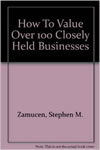Business consultants
Business Appraisal and Valuation Consultants: 15
Forensic Accounting Consultant Richard Teichner
Richard M. Teichner
Providing Services Nationally
Offices in Reno and Las Vegas shown at the bottom
NV
USA
phone: 775-828-7474
fax: 775-201-2110
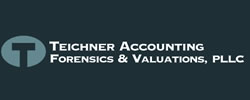
Satellite Media Telecommunication Valuation Consultant Armand Musey
J. Armand Musey
49 West 38th Street
12th Floor
New York NY
10018
USA
phone: 212-433-4800
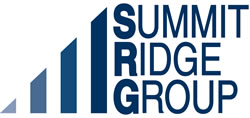
Financial Economist Expert Stan Smith
Dr. Stan V. Smith
President & Founder
1165 N. Clark Street, Suite 600
Chicago IL
60610-2845
USA
phone: 312-943-1551
fax: 312-943-1016
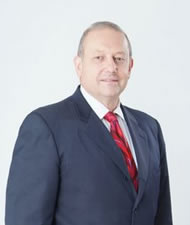
Cannabis Real Estate Consultant Peter Ingersoll
Peter Ingersoll
CCIM – CEO & Corporate Broker
1548 Mission Meadows Drive
Oceanside CA
92057
USA
phone: 925-918-3649
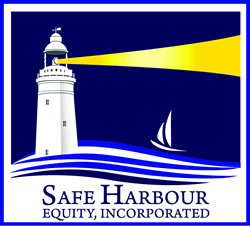
Golf Consultant Richard Singer
Richard Singer
Senior Director of Consulting Services
501 N. Highway A1A
Jupiter FL
33477
USA
phone: 561-744-6006
fax: 561-744-9085
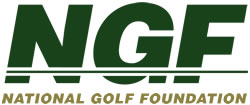
Accounting Consultants Keegan Linscott Associates
Christopher Linscott, CPA, CFE, CIRA and
3443 N Campbell Avenue, Suite 115, Tucson, AZ 85719
USA
phone: 520-884-0176
fax: 520-884-8767
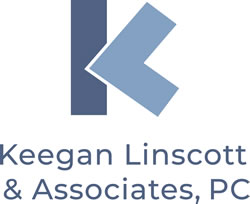
Certified Public Accounting Consultant EJ Janik
EJ Janik, CPA, CFF, CFE
CEO / Senior Principal
400 N Saint Paul Street, Suite 600
Dallas TX
75201
USA
phone: 214.720.9192
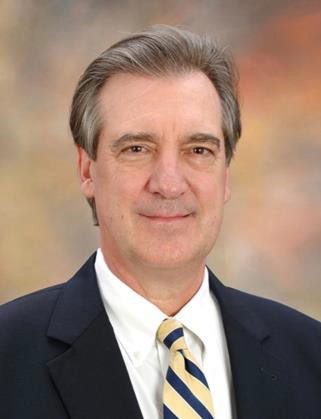
Financial Management Consultant Robert Bates
Robert Bates, JD, CPA, CFE, CVA
CFO
40227 Legend Rose Terr
Fremont CA
94538
USA
phone: 508-331-8815
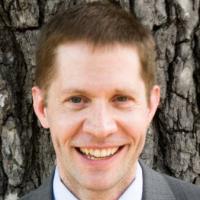
Business Valuation Lost Profits Consultant Michael Pakter
Michael Pakter
203 North LaSalle Street
Suite 2100
Chicago Illinois
60601
USA
phone: 7736711950
fax: 312-229-1720
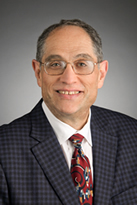
Accounting Financial Management Consultant Witness Michael Garibaldi
Michael J. Garibaldi, CPA, ABV, CFF, CGMA
990 Stewart Avenue-Fifth Floor
Garden City NY
11530
USA
phone: 516-288-7400 (Office) or 516-428-1589 (Cell)
fax: 516-288-7410
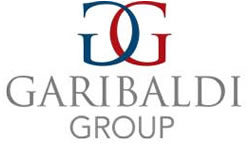
Business Valuation Consultant Donald May
Donald M. May, PhD, (Financial Economics), CPA
Managing Partner
4 Lynwood Ct.
Cortlandt Manor NY
10567
USA
phone: 212-390-0595

Appraisal and Valuation Consultant Ben Tunnell
Ben F. Tunnell III
Chairman
425 E. Colorado St.
#640
Glendale CA
91205
USA
phone: 866-256-9300
fax: 213-532-3807
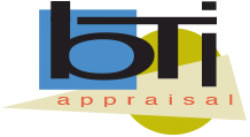
Accounting Consultant Bryan Parker
Bryan L. Parker, CPA/PFS, CFP, CLU, ChFC, CASL, FCPA
Principal
2501 Meadowview Ln., #201
Pelham AL
35124
USA
phone: 205-664-1212 or 205-422-0448 (Cell)
fax: 205-664-1255

Financial Consultant Norman Katz
Kelly Zinser
Principal
1278 Glenneyre Street
Ste. #454
Tustin CA
92651
USA
phone: 949-263-8700
fax: 949-263-0770
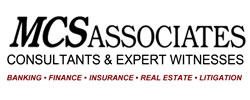
Investment Banking Consultant William Purcell
William H. Purcell
Investment Banking Expert Witness
225 Cedar Ridge Road
Bedminster NJ
07921
USA
phone: (908) 781-1803; cell: (908) 581-1203
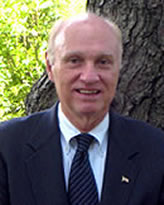
Featured resources
by Stephen M. Zamucen
by Jay B. Abrams
by Simon Benninga, Benjamin Czackes
Follow us







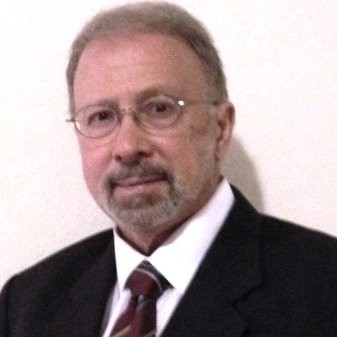 Richard M. Teichner, CPA, ABV, CVA, MAFF, CFF, CRFAC, CRFAU, DABFA, CGMA, CDFA, licensed in both Nevada and California, has over 45 years of experience in public accounting, and for approximately 25 of those years his areas of practice have been primarily providing expert services and consulting services in business litigation and family law matters. With offices in Reno and Las Vegas, Nevada, Mr. Teichner's practice extends to various jurisdictions throughout the United States. Although Mr. Teichner's services are mainly weighted toward complex business litigation and divorce matters, they also include performing valuations of businesses and business interests for estate tax and gifting purposes and for buy-sell situations. Clients have been both businesses and individuals involved in various industries, such as manufacturing, distribution, retail sales, construction, real estate development, and transportation, and in professional practices, e.g. medical, law and accounting, and other service businesses.
Richard M. Teichner, CPA, ABV, CVA, MAFF, CFF, CRFAC, CRFAU, DABFA, CGMA, CDFA, licensed in both Nevada and California, has over 45 years of experience in public accounting, and for approximately 25 of those years his areas of practice have been primarily providing expert services and consulting services in business litigation and family law matters. With offices in Reno and Las Vegas, Nevada, Mr. Teichner's practice extends to various jurisdictions throughout the United States. Although Mr. Teichner's services are mainly weighted toward complex business litigation and divorce matters, they also include performing valuations of businesses and business interests for estate tax and gifting purposes and for buy-sell situations. Clients have been both businesses and individuals involved in various industries, such as manufacturing, distribution, retail sales, construction, real estate development, and transportation, and in professional practices, e.g. medical, law and accounting, and other service businesses.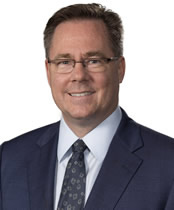 J. Armand Musey, CFA, JD/MBA, founder and president of Summit Ridge Group, LLC, provides consulting services for the Satellite, Media and Telecommunications Industries including business appraisal, intangible asset valuation, strategic consulting, custom research.
J. Armand Musey, CFA, JD/MBA, founder and president of Summit Ridge Group, LLC, provides consulting services for the Satellite, Media and Telecommunications Industries including business appraisal, intangible asset valuation, strategic consulting, custom research. 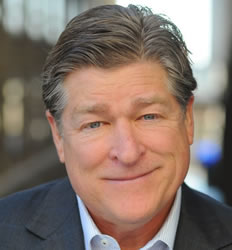 Peter John Ingersoll is a distinguished CEO and Corporate Broker for Safe Harbour Equity, Inc., specializing in Cannabis Real Estate and Investment. With over 40 years of experience in investment real estate, construction, development, trust, and banking, Peter is a thought leader in cannabis capital structures, financial statements, valuation, sale lease-back transactions, recapitalization, and reorganization plans. His expertise extends to off-balance-sheet financing, startup equity investing, mezzanine debt, and preferred equity.
Peter John Ingersoll is a distinguished CEO and Corporate Broker for Safe Harbour Equity, Inc., specializing in Cannabis Real Estate and Investment. With over 40 years of experience in investment real estate, construction, development, trust, and banking, Peter is a thought leader in cannabis capital structures, financial statements, valuation, sale lease-back transactions, recapitalization, and reorganization plans. His expertise extends to off-balance-sheet financing, startup equity investing, mezzanine debt, and preferred equity.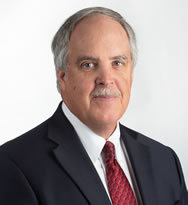 Christopher G. Linscott, CPA, CFE, CIRA, is a Director of Keegan Linscott & Associates and is the Director of Litigation, Forensic Accounting, and Bankruptcy Support Services. He also manages corporate financial audits and tax clients. Mr. Linscott was previously employed with the international CPA firms of Coopers & Lybrand (now PricewaterhouseCoopers), and Peat Marwick (now KPMG). He has more than 25 years of experience in public accounting.
Christopher G. Linscott, CPA, CFE, CIRA, is a Director of Keegan Linscott & Associates and is the Director of Litigation, Forensic Accounting, and Bankruptcy Support Services. He also manages corporate financial audits and tax clients. Mr. Linscott was previously employed with the international CPA firms of Coopers & Lybrand (now PricewaterhouseCoopers), and Peat Marwick (now KPMG). He has more than 25 years of experience in public accounting.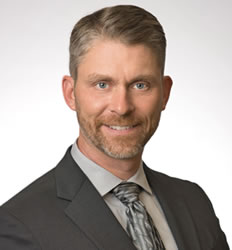 Sean Tanner, CPA, CFE, CIRAis a Consulting Director at Keegan Linscott & Associates, specializing in Litigation Support (Financial Expert), Forensic Accounting, Restructuring, Bankruptcy Support, and Merger and Acquisition / Transaction Services.
Sean Tanner, CPA, CFE, CIRAis a Consulting Director at Keegan Linscott & Associates, specializing in Litigation Support (Financial Expert), Forensic Accounting, Restructuring, Bankruptcy Support, and Merger and Acquisition / Transaction Services.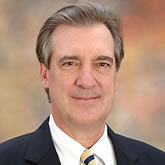 Principal, EJ Janik, CPA, CFF, CFE is a Certified Public Accountant with 40 years of professional experience. He has been engaged as an accounting consultant on issues involving, among other things, public and private company audits, due diligence, fact finding, asset tracing, lost profits analysis, damage analysis, fraud analysis, insurance claims and business valuations. Mr. Janik holds a Master of Science in Accounting from Louisiana State University and a Bachelor of Commerce from Rice University. He is a member of the American Institute of Certified Public Accountants and the Texas Society of Certified Public Accountants. Mr. Janik has provided expert testimony in over 88 matters including testimony in 58 trials or hearings in 8 states. His experience also includes over 23,000 hours of Engineering and Construction auditing and consulting work on construction claims matters involving:
Principal, EJ Janik, CPA, CFF, CFE is a Certified Public Accountant with 40 years of professional experience. He has been engaged as an accounting consultant on issues involving, among other things, public and private company audits, due diligence, fact finding, asset tracing, lost profits analysis, damage analysis, fraud analysis, insurance claims and business valuations. Mr. Janik holds a Master of Science in Accounting from Louisiana State University and a Bachelor of Commerce from Rice University. He is a member of the American Institute of Certified Public Accountants and the Texas Society of Certified Public Accountants. Mr. Janik has provided expert testimony in over 88 matters including testimony in 58 trials or hearings in 8 states. His experience also includes over 23,000 hours of Engineering and Construction auditing and consulting work on construction claims matters involving: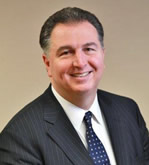 Founder of The Garibaldi Group and one of the industry's leading law firm services experts, Michael J. Garibaldi, CPA, ABV, CFF, CGMA, has a strong background providing efficient and affordable solutions to complex matters of finance.
Founder of The Garibaldi Group and one of the industry's leading law firm services experts, Michael J. Garibaldi, CPA, ABV, CFF, CGMA, has a strong background providing efficient and affordable solutions to complex matters of finance.
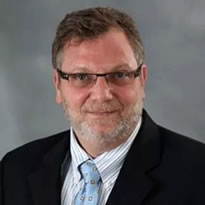 Donald M. May PhD, CPA, Managing Partner at DMA Economics, LLC, possesses over 30 years of Valuation and Economic Damages experience. He implements a broad range of damage analyses and valuations for clients including billion dollar investment funds under SEC investigation as well as smaller businesses concerned with the impact of potential litigation and strategies to reduce potential liability.
Donald M. May PhD, CPA, Managing Partner at DMA Economics, LLC, possesses over 30 years of Valuation and Economic Damages experience. He implements a broad range of damage analyses and valuations for clients including billion dollar investment funds under SEC investigation as well as smaller businesses concerned with the impact of potential litigation and strategies to reduce potential liability. 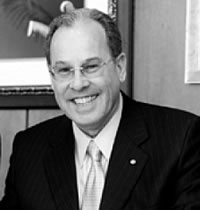 BTI’s Founder and Chairman, Ben F. Tunnell III, has headed the firm since 1974. Previously, he spent eight years with First Interstate Bank of California as vice president at their corporate headquarters in Los Angeles. He served on the board of arbitrators for both the American Arbitration Association and the Better Business Bureau. He has also been a Registered Investment Advisor and Broker/Dealer with the Securities and Exchange Commission and a licensed, California Real Estate Broker. Mr. Tunnell is an ASA, the senior designation of the American Society of Appraisers, and a California Certified General Real Estate Appraiser #AG-6964.
BTI’s Founder and Chairman, Ben F. Tunnell III, has headed the firm since 1974. Previously, he spent eight years with First Interstate Bank of California as vice president at their corporate headquarters in Los Angeles. He served on the board of arbitrators for both the American Arbitration Association and the Better Business Bureau. He has also been a Registered Investment Advisor and Broker/Dealer with the Securities and Exchange Commission and a licensed, California Real Estate Broker. Mr. Tunnell is an ASA, the senior designation of the American Society of Appraisers, and a California Certified General Real Estate Appraiser #AG-6964. 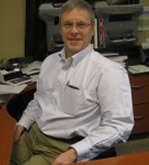 Bryan L. Parker, CPA/PFS, CFP, CLU, ChFC, CASL, FCPA, is a Certified Forensic Accountant with over 30 years of experience in his field. Background - Prior to founding Bryan L. Parker, CPA, LLC, Mr. Parker held the position of CFO at McPherson Oil Company ($300 million + annual revenues) where he was responsible for advising and negotiating banking relationships, acquisition review, acquisition integration, financial reporting, and interaction with external auditors. His experience also includes serving as VP of Mergers & Acquisitions for Citation Corporation (Public Co.) and CFO of TIC United Corp., Dallas, TX ($300 million + revenues).
Bryan L. Parker, CPA/PFS, CFP, CLU, ChFC, CASL, FCPA, is a Certified Forensic Accountant with over 30 years of experience in his field. Background - Prior to founding Bryan L. Parker, CPA, LLC, Mr. Parker held the position of CFO at McPherson Oil Company ($300 million + annual revenues) where he was responsible for advising and negotiating banking relationships, acquisition review, acquisition integration, financial reporting, and interaction with external auditors. His experience also includes serving as VP of Mergers & Acquisitions for Citation Corporation (Public Co.) and CFO of TIC United Corp., Dallas, TX ($300 million + revenues).